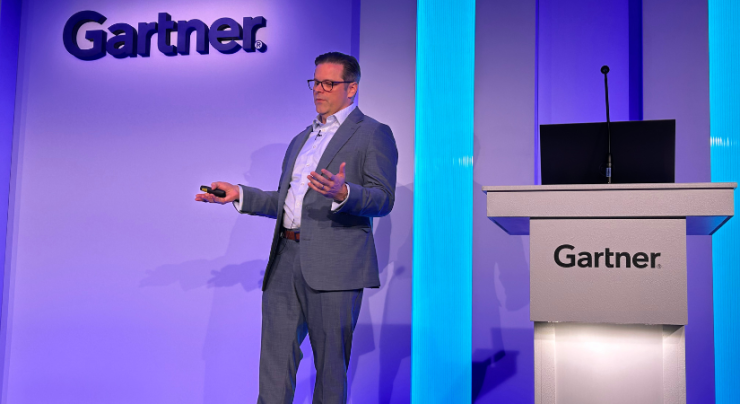While some may say that gen AI enthusiasm
This projection came up during a presentation from

In terms of markets, Gartner research found generative AI capabilities are most available from vendors of solutions pertaining to digital adoption platforms; collaborative work management; intranet package solutions; meeting solutions; and visual collaboration applications. Conversely, generative AI capacities are least available in solutions involving application portfolio management tools; cloud extended planning and analysis solutions; customer communication management; content service platforms; cloud ERP for product-centric enterprises; and cloud ERP for service-centric enterprises.
For the most part, the inclusion of GenAI within enterprise applications focuses on user experience, primarily content creation. In this realm, the principal use case is facilitating employees to write more effectively (aka "augmented writing.") This includes drafting, in whole or part, from a variety of starting points (e.g., blank page, response to message, next section or paragraph); completion of a word, phrase or sentence; correction of spelling or grammar; or changing tone and/or voice.
A similar, related, strong area is content consumption. Here, the principal use case is facilitating employees to read more effectively (aka "augmented reading"). This includes things like providing summaries of documents or meetings, as well as answering questions.
Gartner said, to a very limited extent, "technology creation" (e.g., generating code or processing data), is another area of focus for vendors. In terms of technology creation, the principal use case is metadata attribution in the context of machine experience — that is, facilitating applications to process content as data. More specifically, generative AI has been used in categorization, whereby labels are attributed to content with respect to a variety of dimensions (e.g., sentiment, topic, grouping).
Overall, this jump seems to line up with other Gartner research, such as
Further,
In the wake of rapid generative AI adoption, Mowry said modern finance professionals need to possess both technical expertise and business acumen: data scientists should understand business processes, while business analysts should be proficient in data analytics tools. Ensuring finance staff build technology proficiency should be a top priority, as finance technology is increasingly automating through various technologies such as process mining, robotic process automation and AI, necessitating digital competencies to keep up with these innovations.






